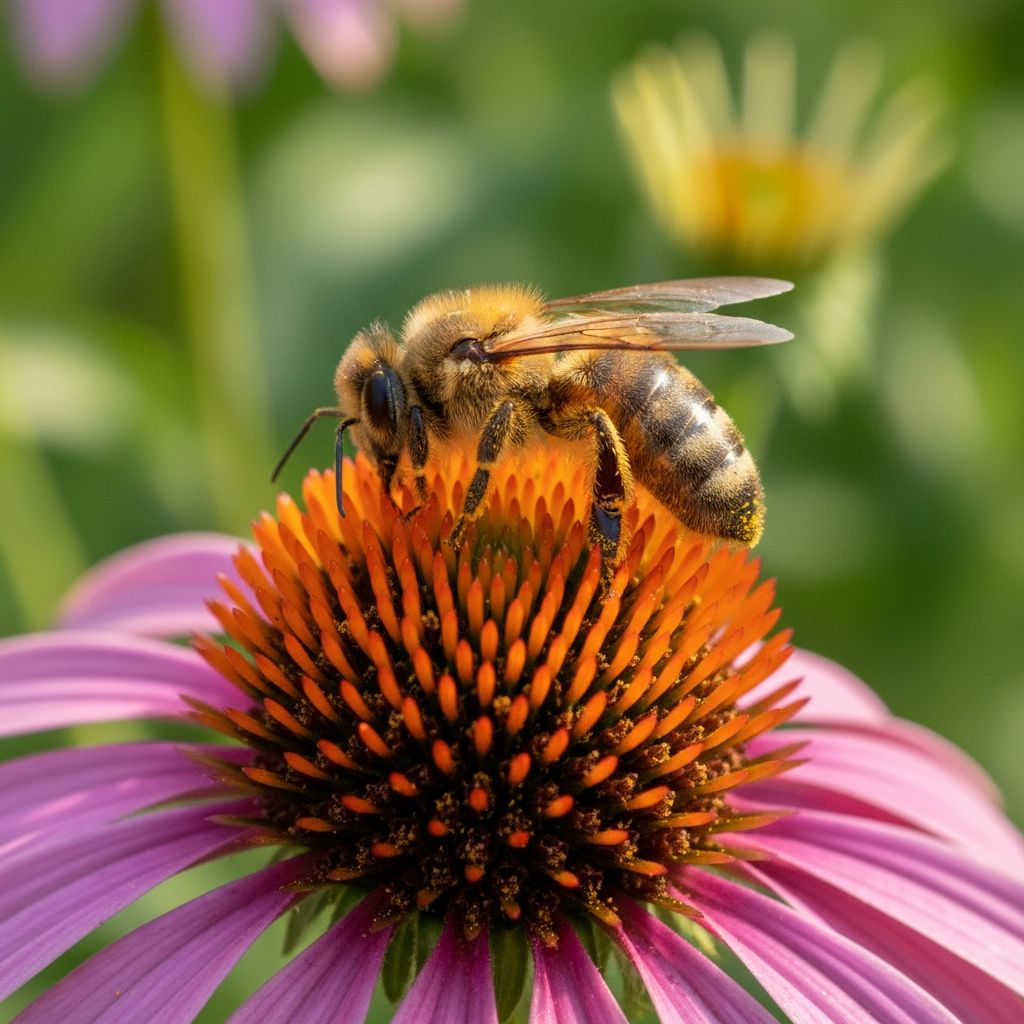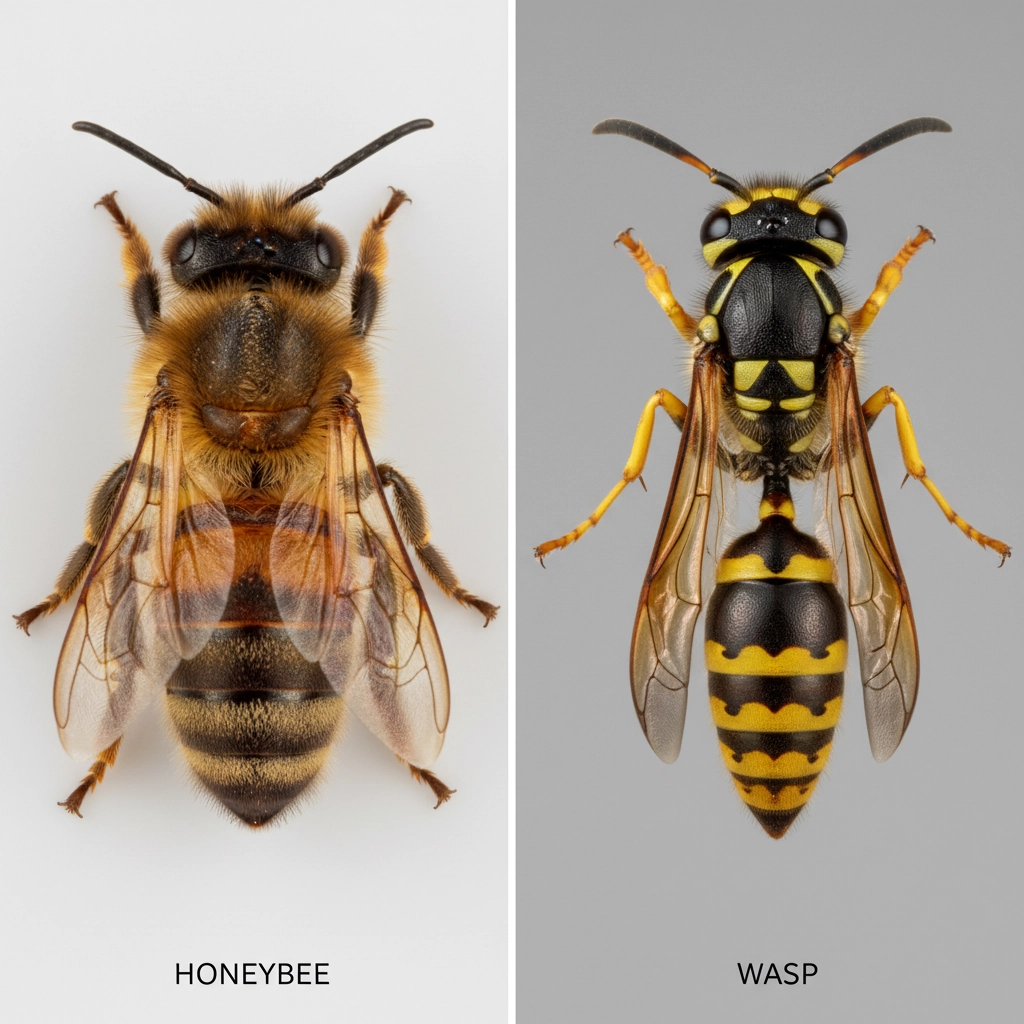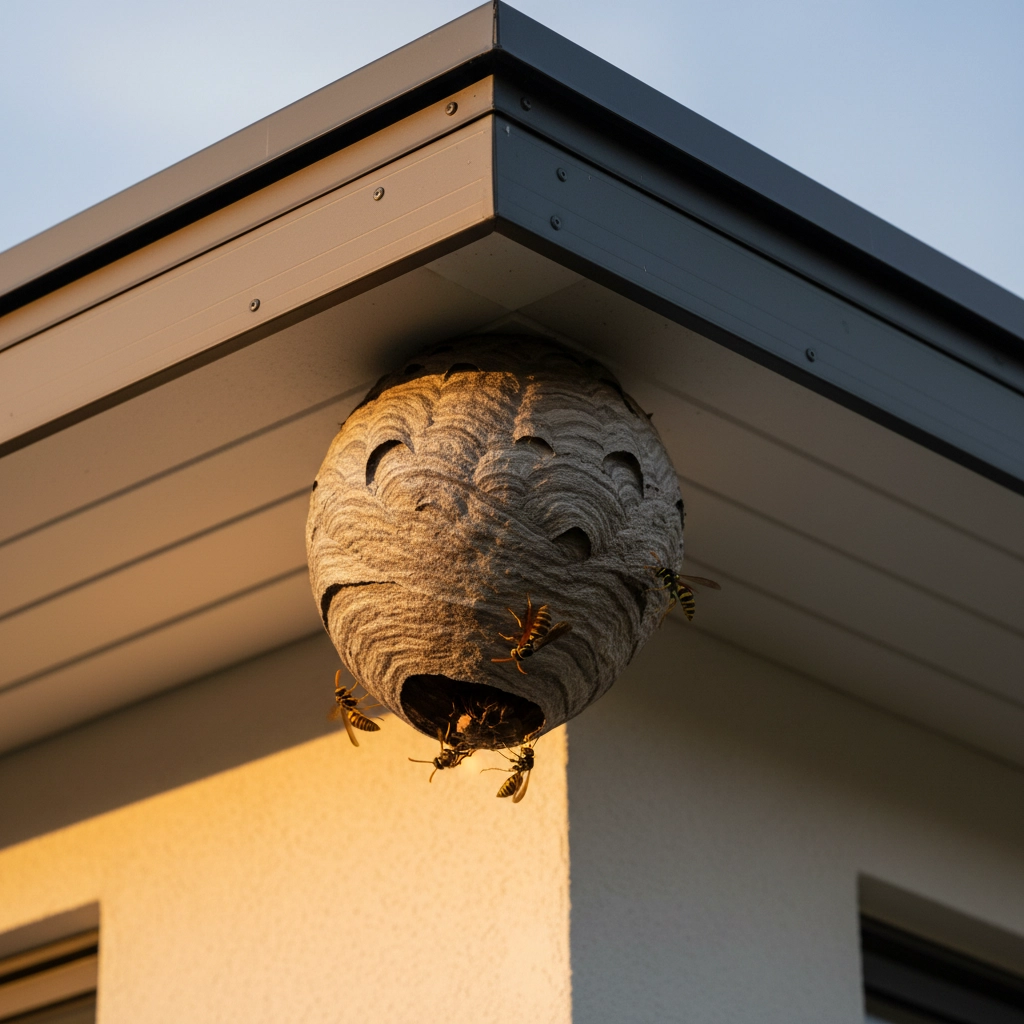The Benefits of Bees and How They Differ from Wasps: A Guide for Haliburton County
- Targeted Wildlife and Pest Solutions

- Sep 26, 2025
- 5 min read
Living in Haliburton County means sharing your property with various buzzing insects during the warmer months. While your first instinct might be to reach for the spray when you see anything with wings and a stinger, understanding the difference between bees and wasps can help you make better decisions about which insects to protect and which ones might need professional attention.
Both bees and wasps play important roles in our local ecosystem, but they serve different functions and pose varying levels of concern for property owners. Let's break down what makes these insects unique and why some deserve your protection while others might require management.
Why Bees Matter to Your Haliburton County Property
Pollination Powerhouses
Bees are among nature's most valuable workers, and your property benefits directly from their presence. These fuzzy insects are responsible for pollinating the plants in your garden, the fruit trees on your cottage property, and the wildflowers that make Haliburton County beautiful.
When bees visit flowers to collect nectar and pollen, they accidentally transfer pollen between plants, enabling reproduction. This process supports the production of fruits, vegetables, and seeds that both wildlife and humans depend on. Without bees, many of the plants you enjoy on your property would struggle to reproduce and thrive.
Supporting Local Food Production
If you grow any fruits or vegetables on your property, bees are working for you for free. They pollinate everything from apple trees to cucumber plants, directly impacting your harvest quality and quantity. Even if you don't garden, the bees on your property are supporting local agriculture and the wild food sources that feed local wildlife.
Honey Production Benefits
Some bee species produce honey, which has been valued by humans for centuries. While you might not harvest honey yourself, local beekeepers in Haliburton County rely on healthy bee populations to maintain their operations, contributing to the local economy and providing natural products to the community.

How to Tell Bees and Wasps Apart
Physical Differences You Can Spot
The easiest way to distinguish between bees and wasps is their appearance. Bees are fuzzy and robust-looking, almost like tiny teddy bears with wings. Their hairy bodies help them collect and carry pollen as they move from flower to flower. You'll notice they look "fluffy" and full-bodied.
Wasps, on the other hand, are sleek and smooth. They have a shiny appearance with minimal hair on their bodies. Many wasps display the classic "wasp waist": that distinctive hourglass figure where their body constricts dramatically between the thorax and abdomen. Their legs are more slender, and their overall appearance is more streamlined.
Behavioral Clues
Watch how these insects behave around your property. Bees are generally focused on flowers and plants, moving methodically from bloom to bloom. They're typically calm and non-aggressive unless directly threatened. You'll often see them covered in pollen, appearing dusty or golden.
Wasps are more erratic in their movement and interests. They might investigate your barbecue, hover around garbage cans, or show interest in sugary drinks and food. They're naturally more curious about human activities and can appear more aggressive in their approach.
Dietary Differences That Matter
Understanding what these insects eat helps explain their behavior around your property. Bees are strictly vegetarian, feeding only on nectar and pollen from flowers. They have no interest in your hamburger or soda can.
Wasps are carnivorous for most of the year, hunting other insects to feed their young. However, in late summer and fall, adult wasps shift their focus to sugary substances. This is when you'll notice them becoming more interested in your outdoor meals and drinks, which can lead to uncomfortable encounters.

When Bees and Wasps Become Concerns
Understanding Bee Behavior
Bees rarely pose a threat to humans. They can sting, but they typically only do so when they feel directly threatened or when defending their nest. Most bees can only sting once, making them reluctant to use their stinger unless absolutely necessary.
If you discover a bee nest on your property, the best approach is usually to leave it alone if it's not in a high-traffic area. Bees are beneficial, and their nests often don't cause problems for property owners when located in appropriate areas.
Wasp Management Considerations
Wasps present a different situation. They can sting multiple times and are more likely to do so, especially during late summer when their colonies are at peak size and food sources become scarce. Yellow jackets, common in our area, can become particularly aggressive around food and sugary drinks.
Wasp nests in high-traffic areas of your property: near doors, walkways, or outdoor gathering spaces: may require professional attention. Unlike bee nests, wasp nests are typically used for only one season, but they can house hundreds or thousands of individuals during their active period.
Seasonal Timing Matters
Both bees and wasps are most active during warm weather, but their peak activity periods differ. Bees remain relatively consistent in their behavior throughout the warm season. Wasps become more problematic in late summer and early fall when their natural food sources dwindle and they become more interested in human food and activities.

Practical Advice for Haliburton County Property Owners
Creating Bee-Friendly Spaces
You can support bee populations on your property by providing diverse flowering plants throughout the growing season. Native plants are particularly valuable because they're adapted to our local conditions and provide the nutrition bees need.
Avoid using pesticides when possible, as these can harm beneficial insects. If you must use treatments for other pest issues, choose targeted approaches and timing that minimize impact on bees and other beneficial insects.
Managing Wasp Issues Safely
If wasps become problematic on your property, avoid attempting removal yourself, especially if you're dealing with an established nest. Wasps can become extremely aggressive when their nest is threatened, and multiple stings can be dangerous.
Professional pest control services have the experience and equipment to safely assess and address wasp issues while minimizing risk to you and your family. They can also distinguish between beneficial insects that should be protected and problematic species that need management.
Cottage and Seasonal Property Considerations
If you own a cottage or seasonal property in Haliburton County, you might discover wasp or bee activity when you arrive for the season. Before taking action, take time to observe and identify what you're dealing with. Bees that have established themselves during your absence are likely providing valuable services to the surrounding ecosystem.
Wasps that have built nests in structures or high-traffic areas during your absence may need professional attention before you can safely use outdoor spaces.
Working with Nature in Haliburton County
Appreciating the Balance
Both bees and wasps contribute to our local ecosystem, even if their contributions look different. Bees support plant reproduction and biodiversity, while wasps help control pest insect populations that could otherwise damage gardens and crops.
Understanding these roles helps you make informed decisions about when intervention is necessary and when coexistence is the better option.
Professional Support When Needed
At Targeted Wildlife and Pest Solutions, we understand the importance of protecting beneficial insects while addressing legitimate safety concerns. Our approach focuses on identifying species, assessing risk levels, and providing solutions that balance human safety with environmental responsibility.
We can help you distinguish between insects that provide benefits and those that pose problems, offering management strategies appropriate for your specific situation and property needs.

Whether you're dealing with a concerning wasp nest or wondering about bee activity on your property, professional assessment can provide peace of mind and ensure the right approach for your situation. Contact us to discuss your specific concerns and learn about options that protect both your family and the beneficial insects that make Haliburton County's ecosystem thrive.
Comments